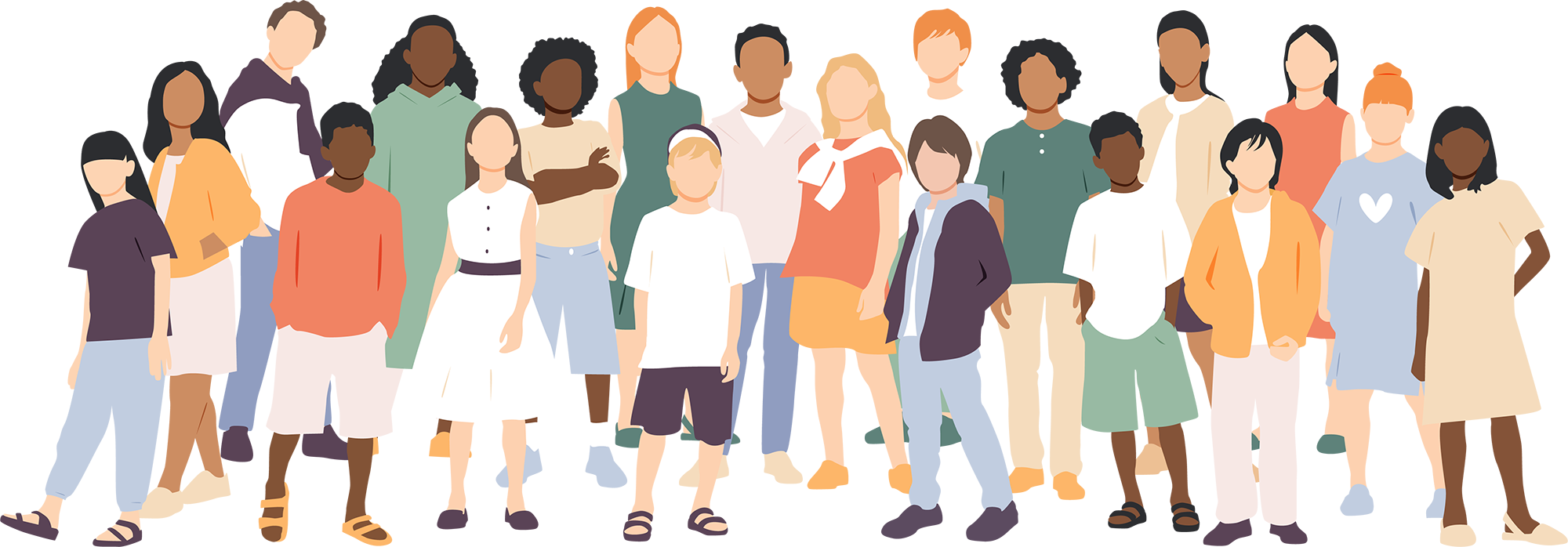What is violence and what does the law say about the sexual relations of minors?
This website provides key information on issues that often concern young people in relation to violence and sexual acts. Both are issues from which children and young people should be particularly protected.

Every person, regardless of his or her age, has the right to decide and control his or her own body. No one may interfere with a young person's body and violate his or her right to self-determination, whether it be a dating partner, a parent, an employee of an institution, a friend or a completely unknown person. The Constitution of FinlandAvautuu uuteen välilehteen States the following: “Everyone has the right to life and to personal liberty, integrity and security.” “The personal integrity of the individual shall not be violated, nor shall anyone be deprived of liberty arbitrarily or without a reason prescribed by an Act.”
The provisions and penalties of the Criminal CodeAvautuu uuteen välilehteen are based on this provision in situations where a person’s physical integrity is violated.
What is violence?
Violence hurts and violates physical integrity. Violence in Finland is never acceptable. Only in a genuine self-defence situation can violence be resorted to. For example, a police officer or a security guard may also resort to the use of force if this is necessary for the performance of the work task.
However, it is important to know that a child or young person must not be hurt by corporal punishment, not at home, at school, in the city, in a place of care or in hobbies. Hurting is not always about beating, kicking or other physical violence; it can also be psychological, honour-related or sexual violence.
Mental violence refers to insulting or intimidating another person, for example, verbally. Mental violence also includes, for example, a threatening body language (sudden movements, an increase in voice, an unpleasant approach) that the victim may feel very frightening even if there is no actual physical contact.
Technology can also be used to control, isolate, extort, defame, smear, intimidate or punish another person. This is called digital violence.
What does the law say about young people's sexual relations?
Sex must always be voluntary and consensual.
Participation in a sexual act is not voluntary if the young person:
- has not expressed his or her participation in it voluntarily by means of words, behaviour or other means;
- has been forced into a sexual act by using violence or threat; or
- has not been able to form or express his or her will due to his or her unconsciousness, illness, disability, state of fear, state of extreme intoxication, impaired consciousness, sudden nature of the situation, serious abuse of a special power position or another comparable reason.
- However, the 16-year age limit does not apply to situations involving a relationship between two young people, where they both want to have sex and where there is no pressure or threat.
- The higher 18-year age limit applies in situations where an adult who plays a particularly important role in the life of a young person commits sexual acts to a minor. If a young person's coach, teacher, parent, employer, therapist or other close adult seeks to have sexual relations with a young person under 18 years of age, he or she commits a crime.
A sexual act means not only sexual intercourse but also a variety of sexual acts that a minor has to watch, experience or commit. Messages related to sex or nudity, inappropriate touching, demanding nude pictures or showing pornography to a person under 16 years of age are examples of prohibited sexual acts.
Sexual violence can be physical coercion, but it can also be something else. It could be enticing, persuasion, or praise. By these means a youth can be induced to do things he or she is not ready for. It may also be that an adult buys or offers a young person intoxicants, money, or branded goods in exchange for sex.
Sexual acts may also be committed on social media, various applications and online gaming platforms. It may be a case of violence or some other crime, even if an adult and a young person have not even met in the same room or never met outside the internet.
Chapter 20 of the Criminal Code contains more detailed provisions on various sexual offences.
If you experience harassment, sexual violence or suspect that you have been the victim of a crime, you can get help:
Information on what to do if your friend is harassed, enticed or sexually assaultedAvautuu uuteen välilehteen
Legislation on sexual offences (Ministry of Justice)
Avautuu uuteen välilehteenEmergency number 112Avautuu uuteen välilehteen
How do I get help when things aren't going well?
If you are mistreated or unjustly treated, or if you are frightened by a threatening matter, you need to find help. Adults know how to help, and they have a duty to do so. Adults working in schools, health care and child welfare have received training on how to deal with and treat children. They also know how to inform other adults of the need for help or protection. The important thing is that you're not left alone. Fortunately, someone to chat with, but above all, help and advice on a difficult situation can be found in various support services.
Telling a friend helps a little. Trusting an adult can really change things for the better.
To get help, it is important to be able to answer what kind of fear or anxiety you have, what has happened to you, and who has acted wrongly against you.
Remember these too:
- If the situation is threatening and you feel threatened, call 112. Tell who you are, where you are, and what kind of emergency it is about. The emergency number is called in urgent emergencies, where assistance authorities are needed (police, emergency care, rescue, social services).
- It can happen that you do not immediately realize that you have been mistreated and that a crime may have occurred. It may not be until later that you realize that you have been wronged. Things can be clarified later.
- Do not be left alone. Tell someone about your situation. If you find it difficult to talk, write a message or send a voice message.
- Talk to a trusted friend, emergency phone, chat service or contact school staff, school nurse, teacher, parents or other trusted adults. Every adult who deals with children and young people has an obligation to take measures to improve the situation and help the child.
- Many helplines, online and chat services are anonymous and you can be open or ask for advice without having to tell who you are. Search online for contact information, for example, with the words “I'm scared,“ “I'm a victim of crime,” “young person,” “helping bodies”.
- Take care of your safety. Do not move around alone and avoid places, situations, and people that pose a danger to your well-being.
- Contact yourself or together with an adult the police, a lawyer or the Victim Support Finland (RIKU) for advice on your situation. You can easily find contact information online.
- If you are placed outside your home, you can file a complaint about the actions or negligence of the adults caring for you.
- If your home conditions are insecure or your basic needs (integrity, sleep, food, clothing, recovery and peace) are not taken care of, you can contact your local social services or child welfare services. You can also share your concerns with adults at school.
- School attendance should be safe and equal for everyone. Ultimately, the principal is responsible for ensuring that everyone has the right conditions for learning and that everyone is respected as they are.

Published 21.3.2025
